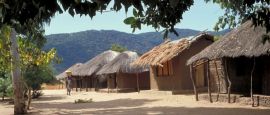Malawi History, Language and Culture
History of Malawi
The shores of Lake Malawi have been inhabited for thousands of years and recent archaeological excavations have revealed evidence of settlements dating back to the late Stone and Iron Ages. The majority of the present population descend from Bantu tribes, who arrived in the region some time before the first Arab slave traders and Portuguese explorers. British colonial settlers and missionaries, including David Livingstone, moved into the area in the late 1850s.
Colonial domination became inevitable and, in 1891, the British declared the country the British Protectorate of Nyasaland. In 1953, the British federated Nyasaland with Northern and Southern Rhodesia (now Zambia and Zimbabwe), but Nyasaland seceded in 1963 following elections which gave Dr Hastings Banda a majority.
In 1964, Nyasaland became independent as Malawi and, two years later, was declared a republic and a one-party state. In 1971, Dr Banda became President for Life, and during his subsequent reign retained a firm grip of the country, jailing or exiling opponents and attracting criticism for his support of South Africa’s apartheid regime.
By 1993, the ailing Banda was forced to concede political pluralism in Malawi. After the adoption of a new constitution, simultaneous parliamentary and presidential elections were held in 1994. Banda and his chief henchman, the much-hated and feared John Tembo, were put on trial for their alleged role in the 1983 murders of four opposition politicians. They were acquitted in 1995, although investigations into various financial misdemeanours continued. The prosecution of Banda ended with his death in 1997, but Tembo was eventually convicted in 2003.
Abroad, Malawi has aligned itself with the post-liberation government in South Africa, the main political and economic force in the region. Domestically, the HIV/AIDS pandemic has been the dominant issue: Malawi is one of the worst affected countries with an estimated one million people (just under 10% of the total population) living with the infection.
Traditionally a very conservative society strongly influenced by Scottish missionaries during the colonial era, Malawi has found it hard to come to terms with its plight.
Did you know?
• Blantyre, the second city, hosts an annual nsima eating contest. Winners can expect to pack away up to 3kg of the starch.
• Lake Malawi contains more fish species than any other lake.
• The lake is locally known as Lake Nyasa, which translates as ‘Lake Lake’.




 You know where
You know where